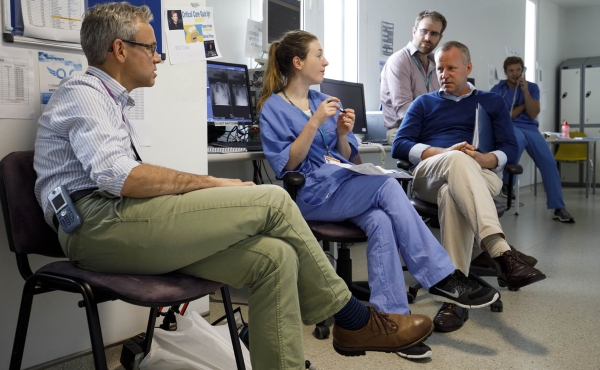Support for examinations and training
Support for examinations and training
We have resources to support anaesthetists in training during examinations and throughout the training programme.
We understand the impact examinations and training can have on your personal and professional lives and we want to support you through this period in your career. Our support services and guidance are designed to help you prepare for exams, support you with any challenges in your training and help you maintain your work-life balance.
Resources for candidates
If you are preparing for the FRCA examinations, we have a range of resources to help you.
- The FRCA exam syllabus for Core Level Training and Intermediate Level Training
- e-Learning Anaesthesia, our interactive online learning resource that covers the knowledge and key concepts underpinning the anaesthetic curriculum.
- Our Primary ‘Run through’ video series is designed to help guide you through the Primary exam. It features videos focused on the OSCE and videos focused on the SOE.
- Our Final FRCA written examination resources include examples of Multiple True/False questions (MTF), Single Best Answer questions (SBA) and Constructed Response Questions (CRQ).
- Our Final SOE resources includes a series of videos to demonstrate how examiners perform an SOE, the structure of the questions and the level of knowledge required, and examples of pass and borderline performance.
- Our online revision courses for the MCQ and written elements of the Primary and Final FRCA examinations can support your exam preparations.
Support for candidates
- If you have a disability or difficulty that puts you at a substantial disadvantage, we can make reasonable adjustments to examination arrangements for you.
- If you are pregnant, disabled or have any temporary medical conditions, we can make special arrangements for you during examinations.
- If you have been unsuccessful in your structured oral examination (SOE), you can request examiner comments on your performance. Our examination regulations provide full details of our candidate feedback policy. Candidates are also provided with curriculum referencing breakdowns for all FRCA MCQ examinations.
- If you have failed components of the FRCA more than once, you may be eligible for a guidance interview, with one of our examiners and (if you wish) your College Tutor. The interview will identify action you can take to help you prepare for subsequent attempts. Eligibility for guidance interviews varies depending on which component of the FRCA you have failed and the number of attempts. You can find full details in our examinations regulations.
Support throughout the training programme
Online resources
- We provide support to doctors applying through the anaesthesia recruitment process in the UK. This includes the latest news on current recruitment, simulated interview preparation videos for CT1/ACCS (Anaesthetics) and ST4, and our recruitment events.
- Our interactive Novice Guide will support your first 3-6 months of training in anaesthesia and ACCS (anaesthesia). The step-by-step guide includes 82 e-learning sessions and will help you get started on the training programme.
- Our online Training Hub provides you with everything you need to know about training in anaesthesia.
Training support from College representatives
- College Tutors are educational leads within anaesthetic departments. If you are an anaesthetist in training, your College Tutor can help you with your educational, pastoral and career planning needs. College Tutors work closely with Regional Advisers Anaesthesia (RAAs), who are senior College representatives, appointed by Council, to represent their School and associated area to the College and vice versa. You can find a list of all College Tutors and Regional Advisers in our Schools of Anaesthesia list.
We have appointed two Bernard Johnson Advisers (BJA) to provide additional support for training.
- Our Bernard Johnson Adviser for Training is Dr Jon Chambers. Jon’s role is to support and guide people who are, or aspire to be, in a core, ACCS or higher anaesthetics training post, or who are using alternative posts or training routes to achieve a CCT or CESR in anaesthesia.
- Our Bernard Johnson Adviser for Less Than Full Time Training (LTFT) is Dr Nicky Hickman. Nicky’s role is to provide high-level representation of matters relating to less than full time training across the UK and to share best practice in less than full time working policy in postgraduate medical education and training.
You can contact Jon or Nicky via our training team.
Flexibility within the training programme
- All doctors are eligible to apply for Less than full-time (LTFT) training. LTFT training enables you to continue training while caring for your dependants, yourself (for health problems or disability) or, in some circumstances, pursuing other non-work related commitments.
- You can request to spend some time out of your training programme (OOP) to take advantage of other opportunities. These might include other training or professional development opportunities, undertaking research or to take a career break. You can find more details about out of programme opportunities and how to request time out in the Gold Guide.
Related Content
Support for individuals
Do you need help now? These services provide direct and confidential support for your mental health
Workplace wellbeing
Resources to help you support wellbeing in the workplace at a departmental level.



